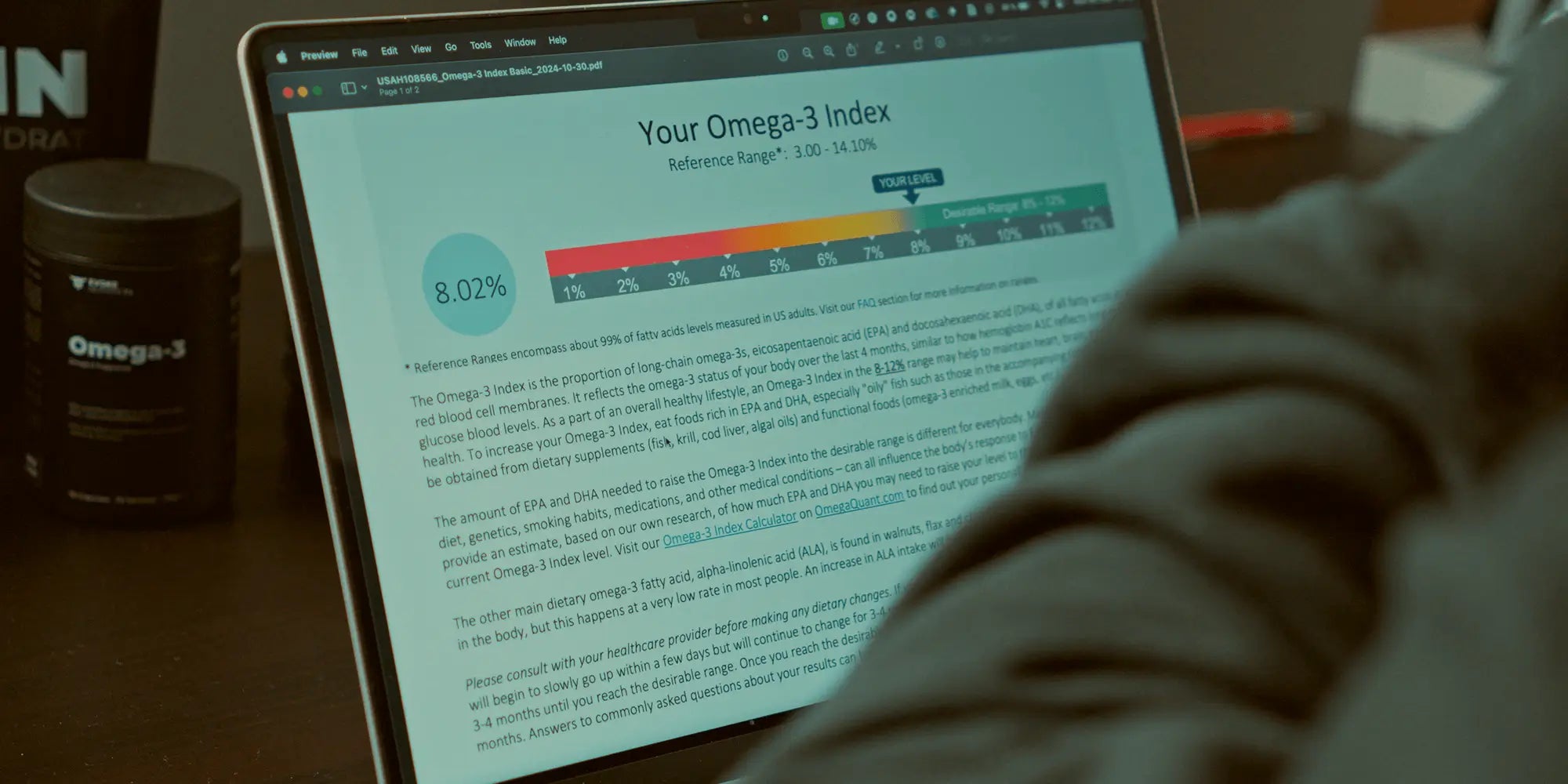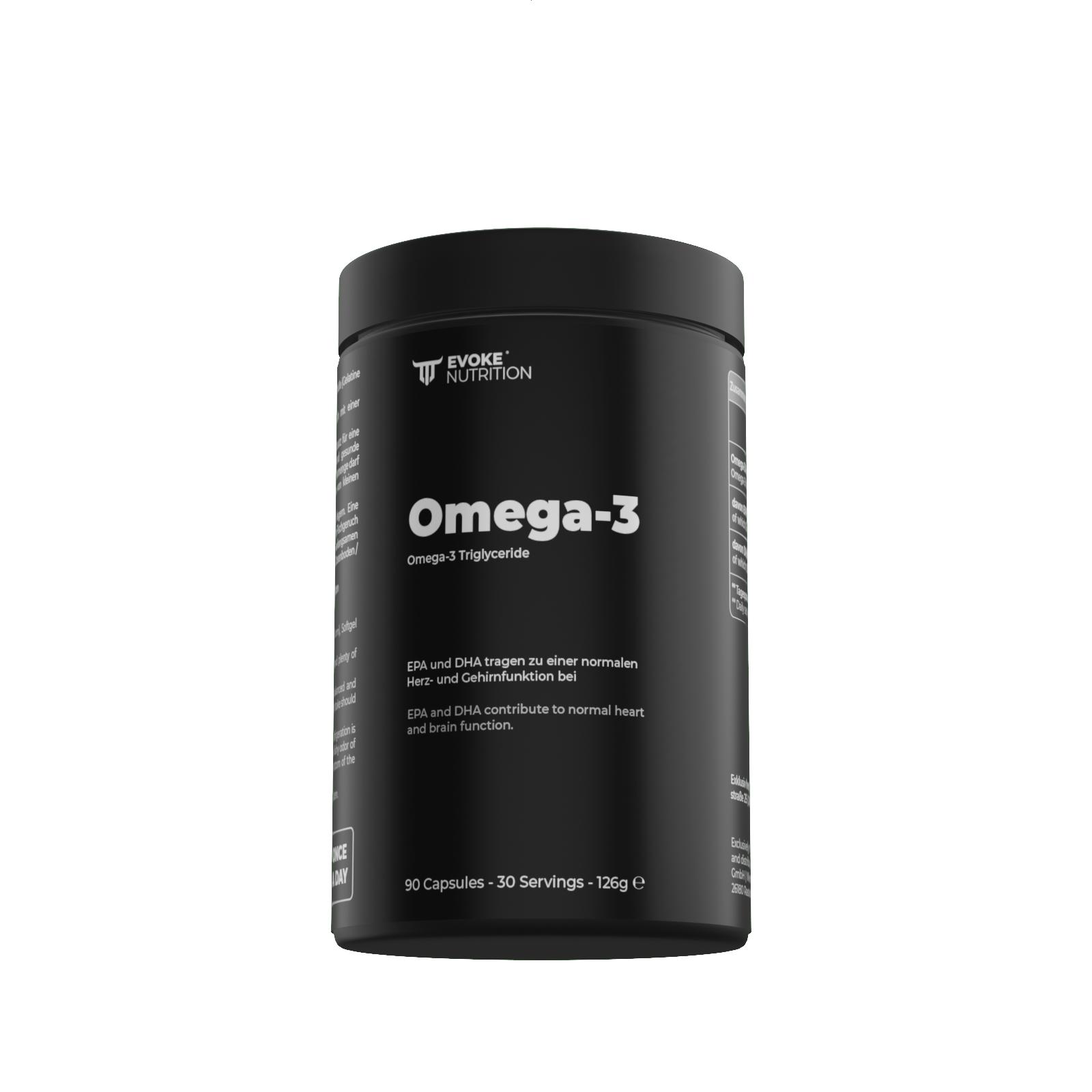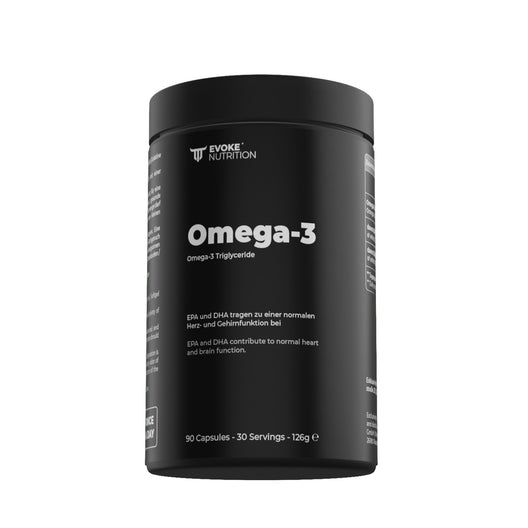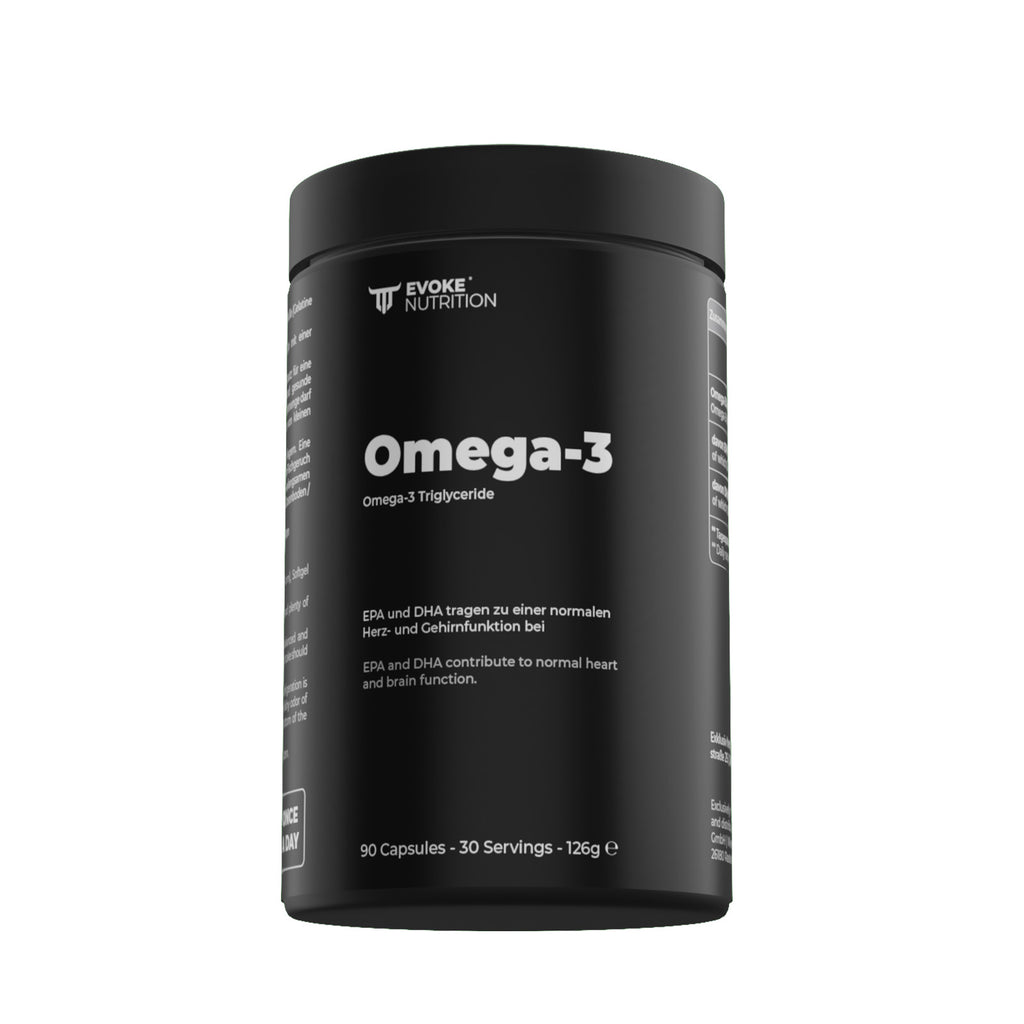Omega-3 Mangel

Omega-3 Fettsäuren
Omega-3: EPA, DHA & ALA
Mangel von Omega-3
Beste Möglichkeit, um Omega-3 Mangel zu erkennen
Symptome, um Omega-3 Mangel zu erkennen
Trockene Augen
Unreine Haut
Konzentrationsschwierigkeiten (Brain Fog)
Fazit
Quellen
1
DHA trägt zur Erhaltung einer normalen Gehirnfunktion und zur normalen Sehkraft bei.
2
EPA und DHA tragen zu einer normalen Herzfunktion bei.
3
Skulas-Ray, Ann C et al. “Omega-3 Fatty Acids for the Management of Hypertriglyceridemia: A Science Advisory From the American Heart Association.” Circulation vol. 140,12 (2019): e673-e691. , https://pubmed.ncbi.nlm.nih.gov/31422671/.
4
Flock, Michael R et al. “Determinants of erythrocyte omega-3 fatty acid content in response to fish oil supplementation: a dose-response randomized controlled trial.” Journal of the American Heart Association vol. 2,6 e000513. 19 Nov. 2013, https://pubmed.ncbi.nlm.nih.gov/24252845/.
5
Superko, H Robert et al. “Omega-3 fatty acid blood levels: clinical significance and controversy.” Circulation vol. 128,19 (2013): 2154-61. https://pubmed.ncbi.nlm.nih.gov/24190935/.
6
Mohebi-Nejad, Azin, and Behnood Bikdeli. “Omega-3 supplements and cardiovascular diseases.” Tanaffos vol. 13,1 (2014): 6-14, https://pmc.ncbi.nlm.nih.gov/articles/PMC4153275/.
7
Swanson, Danielle et al. “Omega-3 fatty acids EPA and DHA: health benefits throughout life.” Advances in nutrition (Bethesda, Md.) vol. 3,1 (2012): 1-7, https://pmc.ncbi.nlm.nih.gov/articles/PMC3262608/.
8
Ella J. Baker, et al. ”Metabolism and functional effects of plant-derived omega-3 fatty acids in humans”, Progress in Lipid Research, Volume 64, 2016, https://www.sciencedirect.com/science/article/abs/pii/S0163782716300303?via%3Dihub.
9
Siscovick, David S et al. “Omega-3 Polyunsaturated Fatty Acid (Fish Oil) Supplementation and the Prevention of Clinical Cardiovascular Disease: A Science Advisory From the American Heart Association.” Circulation vol. 135,15 (2017), https://pmc.ncbi.nlm.nih.gov/articles/PMC6903779/.
10
Cameron-Smith, David et al. “Fishing for answers: is oxidation of fish oil supplements a problem?.” Journal of nutritional science vol. 4 e36. 23 Nov. 2015, https://pmc.ncbi.nlm.nih.gov/articles/PMC4681158/.
11
Albert, Benjamin B et al. “Oxidation of marine omega-3 supplements and human health.” BioMed research international vol. 2013 (2013): https://pmc.ncbi.nlm.nih.gov/articles/PMC3657456/.
12
Jackowski, Stefan A et al. “Oxidation levels of North American over-the-counter n-3 (omega-3) supplements and the influence of supplement formulation and delivery form on evaluating oxidative safety.” Journal of nutritional science vol. 4 e30. 4 Nov. 2015, https://pmc.ncbi.nlm.nih.gov/articles/PMC4678768/.
13
McNamara, Robert K et al. “Docosahexaenoic acid supplementation increases prefrontal cortex activation during sustained attention in healthy boys: a placebo-controlled, dose-ranging, functional magnetic resonance imaging study.” The American journal of clinical nutrition vol. 91,4 (2010): https://pubmed.ncbi.nlm.nih.gov/20130094/.
14
Yan, J., Liu, M., Yang, D. et al. Efficacy and Safety of Omega-3 Fatty Acids in the Prevention of Cardiovascular Disease: A Systematic Review and Meta-analysis. Cardiovasc Drugs Ther 38, 799–817 (2024). https://link.springer.com/article/10.1007/s10557-022-07379-z.
15
Hu, Yang et al. “Marine Omega-3 Supplementation and Cardiovascular Disease: An Updated Meta-Analysis of 13 Randomized Controlled Trials Involving 127 477 Participants.” Journal of the American Heart Association vol. 8,19 (2019): https://pmc.ncbi.nlm.nih.gov/articles/PMC6806028/.
16
von Schacky, Clemens. “Importance of EPA and DHA Blood Levels in Brain Structure and Function.” Nutrients vol. 13,4 1074. 25 Mar. 2021, doi:10.3390/nu13041074 https://pmc.ncbi.nlm.nih.gov/articles/PMC8066148/.
17
Skulas-Ray, Ann C et al. “Dose-response effects of omega-3 fatty acids on triglycerides, inflammation, and endothelial function in healthy persons with moderate hypertriglyceridemia.” The American journal of clinical nutrition vol. 93,2 (2011). https://pmc.ncbi.nlm.nih.gov/articles/PMC3138218/.
18
Gurtler, Anna et al. “Exploring the potential of omega-3 fatty acids in acne patients: A prospective intervention study” (2024): 1096-1129. https://onlinelibrary.wiley.com/doi/10.1111/jocd.16434.
19
Dighriri, Ibrahim M et al. “Effects of Omega-3 Polyunsaturated Fatty Acids on Brain Functions: A Systematic Review.” Cureus vol. 14,10 e30091. 9 Oct. 2022, https://pmc.ncbi.nlm.nih.gov/articles/PMC9641984/.
20
Dyall, Simon C. “Long-chain omega-3 fatty acids and the brain: a review of the independent and shared effects of EPA, DPA and DHA.” Frontiers in aging neuroscience vol. 7 52. 21 Apr. 2015, https://pmc.ncbi.nlm.nih.gov/articles/PMC4404917/.
21
Prokopiou, Ekatherine et al. “Eicosapentaenoic acid-rich omega-3 fatty acids supplementation may improve vision in dry age-related macular degeneration or Stargardt disease, as shown in MADEOS, a prospective, randomized, multicentre, double-blind, placebo-controlled pilot study.” 1 Sep. 2024, https://www.sciencedirect.com/science/article/pii/S2213434424000264.
22
Wang, Wei-Xiang, and Mei-Lan Ko. “Efficacy of Omega-3 Intake in Managing Dry Eye Disease: A Systematic Review and Meta-Analysis of Randomized Controlled Trials.” Journal of clinical medicine vol. 12,22 7026. 10 Nov. 2023, https://pmc.ncbi.nlm.nih.gov/articles/PMC10672334/.
23
Lafuente, María et al. “Antioxidant Activity and Neuroprotective Role of Docosahexaenoic Acid (DHA) Supplementation in Eye Diseases That Can Lead to Blindness: A Narrative Review.” Antioxidants (Basel, Switzerland) vol. 10,3 386. 5 Mar. 2021, https://pubmed.ncbi.nlm.nih.gov/33807538/.







